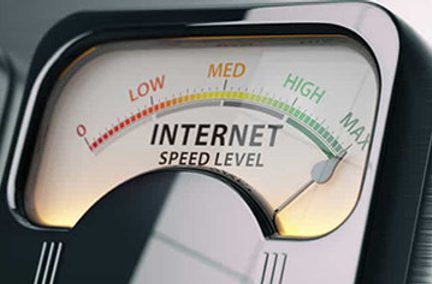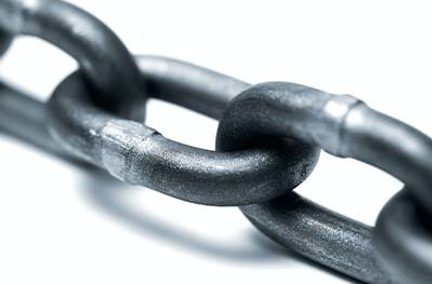When Should You Increase Your Internet Speed?
Jun 6, 2025 | Home Technology, Work from Home, E-Learning, Wi-Fi, Streaming

The demands on your home internet constantly increase as technology evolves and we become more connected. Your current internet plan will eventually be overwhelmed by bandwidth and speed requirements to keep everything running smoothly.
Periodically, you should ask: Do you have enough internet for your home? Is your internet slowing down because of all the connected devices?
Whether to upgrade your internet speed is a common question as our homes become filled with more connected devices and our digital lives demand more from our home networks. Whether you’re struggling with buffering during your favorite Netflix show, experiencing dropped video calls on Zoom, or noticing dead zones where your Wi-Fi signal disappears, there are clear signs when it’s time for a faster internet plan.
Here’s a practical guide to understanding when and why you should upgrade your internet speed.
Understanding Internet Speed Requirements
Download and upload speeds are measured in megabits per second (Mbps). The FCC recommends a broadband connection with at least 25 Mbps for basic internet use for most households. However, if your home is like so many others, filled with smart home devices, multiple smartphones, and frequent streaming of Netflix or Amazon Prime Video, you’ll likely need much faster speeds, often 300 Mbps or more.
For example, high-definition video calls on platforms like Zoom or Skype need a minimum upload speed of 5 Mbps and a download speed of 20 Mbps for a smooth experience. And that’s just one device. Online gaming requires low latency and a stable connection, with competitive gamers often needing 100 Mbps or higher to avoid lag and game freezes. Meanwhile, streaming videos in 4K demands at least 25 Mbps per device, and a household with multiple 4K streams will benefit from gigabit speeds or fiber internet.
While each of these devices may not take much bandwidth on its own, imagine a home full of people streaming, gaming, and video calling all at once. Do the math and you’ll see it requires at least 300-500 Mbps, maybe more.
The average home in the United States has over 20 connected devices, requiring tons of speed to run them all. How much does each typical device require? Check here to find out.
Signs You Need a Faster Internet Speed
If you frequently notice slow internet speeds, buffering, or interrupted Wi-Fi, your current internet plan may be insufficient. This is especially true if multiple devices—smartphones, smart home devices, and streaming sticks—are connected simultaneously. Streaming videos, online gaming, and video chat become frustratingly slow when your bandwidth is stretched thin. Dead zones, where your Wi-Fi signal is weak or nonexistent in certain rooms, indicate that your home network needs attention.
Another red flag is the need to restart your router or modem regularly to restore a stable internet connection. While occasional troubleshooting is normal, frequent restarts suggest that your internet service or equipment struggles to meet your household’s demands. Running an internet speed test can give you a clearer picture of your actual download and upload speeds, helping you compare them to the Mbps you’re paying for in your data plan.
Troubleshooting Your Current System
Before upgrading your internet speed, try troubleshooting your home network. Power your modem and router off and back on, check for firmware updates, and ensure your devices have the latest software. Running an internet speed test will help you identify if your current internet speed matches the Mbps promised by your ISP. If you’re still experiencing problems, it may be time to upgrade your internet service or equipment.
Also, check the age of your equipment. Older PCs and smart devices are often too slow to accept higher-speed internet signals. The device will only run so fast, regardless of the data transfer speed coming to it. It might be time to upgrade your smart TV or laptop.
Evaluating Your Wi-Fi Router
Your Wi-Fi router is crucial in delivering high-speed internet to all your connected devices. You may experience slower speeds, dead zones, or a weak Wi-Fi signal if your router is outdated or not centrally located. Upgrading to a new Wi-Fi router or adding a Wi-Fi extender or mesh network can help eliminate obstructions and improve coverage throughout your home. For the best results, place your router in a central location and minimize physical barriers like walls and large furniture that can block the signal.
For devices that require the fastest internet, such as gaming consoles or smart TVs, consider connecting them directly to your router with an Ethernet cable. This bypasses potential Wi-Fi network issues and ensures the highest possible speeds and lowest latency.
Often ISPs provide a router that works the best with their service. The two biggest benefits are 1) you’ll be guaranteed you’re getting the most speed and bandwidth out of your service, and 2) if anything goes wrong with the router, your ISP will replace it, usually free of charge. These reasons are why all residential Gateway Fiber plans include a router.
When to Consider Upgrading Your Internet Plan
If you consistently experience slow internet speeds, buffering, or frequent disconnections, it’s time to contact your internet service provider (ISP) to discuss upgrading your internet plan. Unlimited data plans are ideal for heavy users who frequently stream, game, or video chat, as they remove concerns about data caps.
Fiber internet offers the fastest speeds and highest reliability, making them ideal for households with many connected devices or those who demand the best performance for streaming, video calls, and online gaming. If you’re on DSL or cable internet and are frequently frustrated by slower speeds, upgrading to fiber internet can make a significant difference.
Making the Switch to Faster Internet
Deciding to upgrade your internet speed is easier when you know what to look for. If you’re tired of buffering, dead zones, and slow Wi-Fi speeds, it’s time to consider a faster internet plan. Whether you need more bandwidth for streaming videos, online gaming, or video chat, or simply want a more reliable connection for your smart home devices, a high-speed internet upgrade is often the solution. With options like fiber internet, you can enjoy the fastest internet available and say goodbye to slow internet speeds for good.
- bandwidth
- home internet
- wifi
- upgrade






